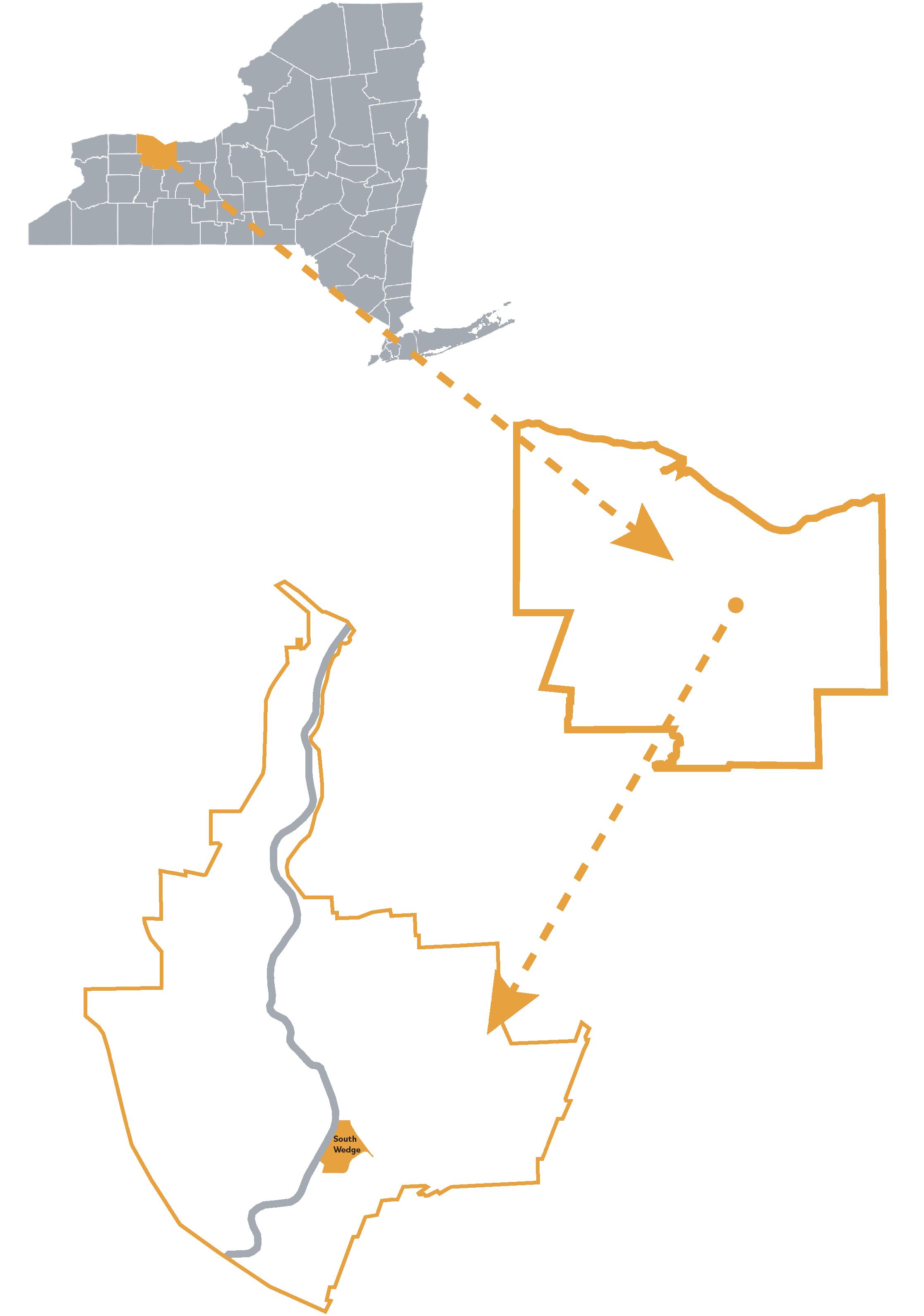FORWARD In the fall semester, 2021, University at Buffalo Environmental Design students conducted a semester-long research and design project on neighborhood scale climate action in the South Wedge neighborhood of Rochester, NY. This studio explored the following prompt: The climate is changing as so too must our built environment. So often this challenge is presented at large scales, leaving individuals overwhelmed and driven to inaction. Our design question: How can designers and planners better connect solutions at scales that impact our everyday life? This group analyzed neighborhood based climate solutions that better connect individual community members with practical and targeted action items within their community. This analysis was broken down into three phases across the semester: 1. Understanding: Listening and analyzing the many complexities in the community 2. Design: Developing unique design and practical planning place based solutions 3. Action: Developing a toolkit that communicates impact, action items, timelines and resources, giving our client a series of tools and implementation techniques to utilize in the future The South Wedge in many ways represents a typical small scale mixed use urban neighborhood, in a small historic city. Like many similar neighborhoods across the United States, this area boasts a strong sense of community and motivation for change, but often lacks resources to organize these changes. This typology represents a unique opportunity as cities begin to invest in climate adaptation strategies nationwide. The goal of this studio is to provide a framework for further work in not just the neighborhood, but for a larger network of communities tackling urban climate adaptation together. Following in this report is a summarized version of END450’s efforts, a practical and hopeful approach to climate adaptation at a scale that balances community and climate.
Mary Allen
December, 2021 Rochester, NY
5







